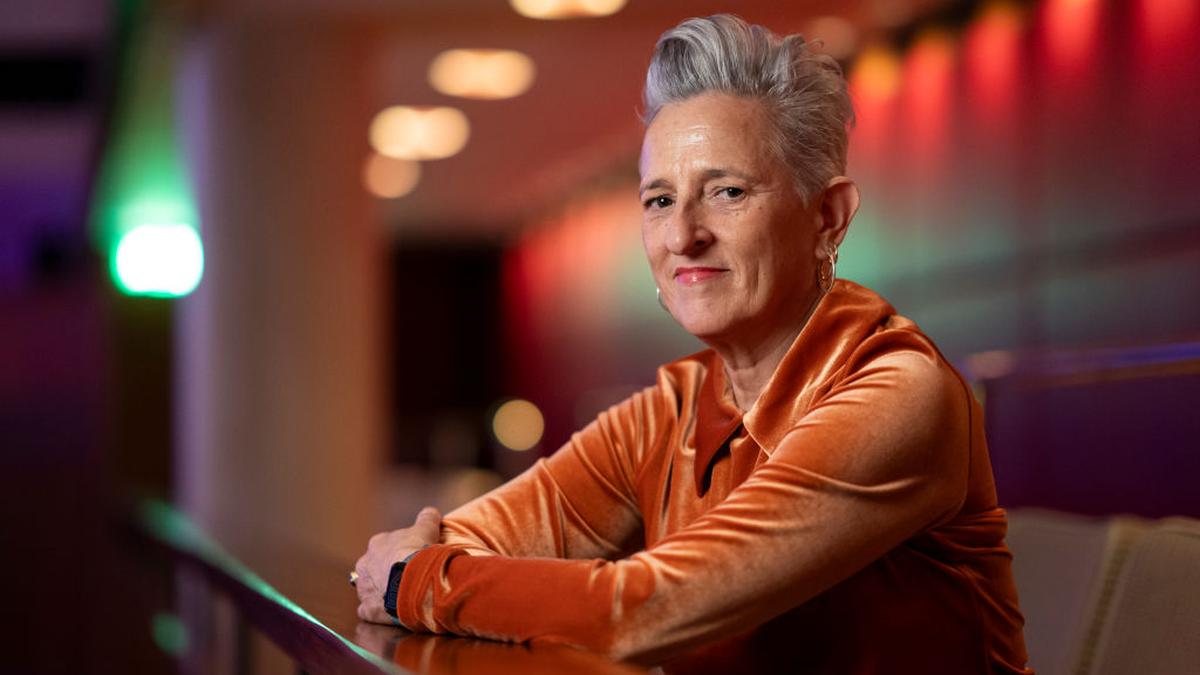
‘My women are not pleasing’: Charlotte Wood, author of 2024 Booker Prize-shortlisted Stone Yard Devotional
The Hindu
Award-winning author Charlotte Wood discusses her Booker Prize shortlisted novel Stone Yard Devotional at the Jaipur Literature Festival.
Award-winning Australian author Charlotte Wood speaks almost meditatively about the fundamental structure of narratives that dictate the plot of her novel Stone Yard Devotional, shortlisted for last year’s Booker Prize.
It traces the journey of a woman (an unnamed narrator) who escapes to a monastery of Catholic nuns in the face of personal adversities. “The book has been written in tiny little fragments or some longer ones, in different rhythms. I wanted something a bit more jagged because my book is about stillness and silence; I needed movement on the page. Otherwise, it’s too boring,” she says, in a conversation on the sidelines of the just-concluded Jaipur Literature Festival.
Set in the sparse Monaro plains of southern New South Wales, Stone Yard Devotional is Wood’s seventh novel. Much like her 2015 book, The Natural Way of Things, which won the Stella Prize in 2016, the location sets the tone for the storyline in Stone Yard, too. “That’s helpful because people [characters] have to respond to the place. It is what filmmakers sometimes call a single arena. So, by starting with a place — like a convent where all my characters choose a life, but don’t necessarily get along with each other — I create a contained environment, which is very useful for creating friction.”
Wood expands on this idea of friction in context to another character — Helen Parry, a radical environmentalist nun — in Stone Yard Devotional. “The narrator, with other women in the convent, is living a very rhythmic, ordered, quiet life, but when Helen comes into this place, there’s a culture clash. They don’t want her there. She doesn’t want to be there too, but she kind of gets stuck there,” says Wood.
Interestingly, there are several instances of nuns who have tread the path of activism, like Australian Catholic nun Brigid Arthur who, along with eight teenagers, took Australia’s environment minister Sussan Ley to court and won; and American nun and rainforest activist Dorothy Stang, who campaigned for 30 years to save the Amazon from the interests of wealthy landlords and was shot dead in 2005.
“I call them the rogue nuns. You know, they’re almost acting alone, but doing very serious work with the poorest of the poor, and speaking truth to power by going to court. So, I find that very inspiring and to have someone like that as a character in the book is helpful narrative-wise, to cause this friction and clash,” she says.
That said, Wood explores powerful feminine identities in her stories. She acknowledges Helen Parry as a very difficult person. She’s blunt, demanding and critical, she says. “I think it’s part of my feminism — to show women as complicated, flawed, powerful, cowardly, annoying, loving, all the range of personalities and emotions that we have always allowed men to have. But women in my culture, and probably, in your culture, have been taught that they can only be a certain number of things — you have to be nice, obedient, pretty, pleasing. And I’m not interested in women being pleasing. My characters are not pleasing,” she adds.













